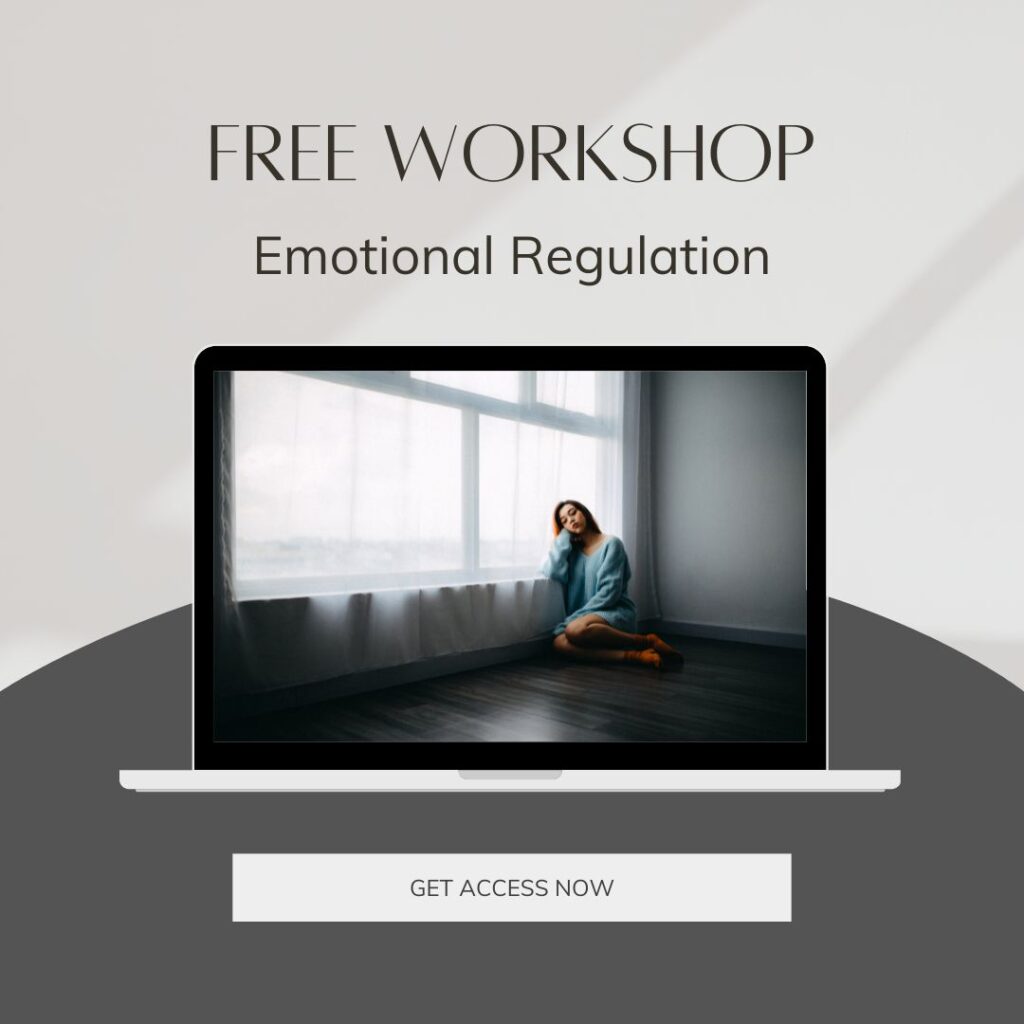Feeling Stuck In Your Identity
Have you ever been labeled, either by someone else or yourself, and felt like it held you back? Like it almost boxed you into an identity that you couldn’t break out of?
- We hear these kind of harsh labels all the time.
- Ugly, stupid, weak, loser, selfish
Even words that might sound neutral can be limiting. For example the word expert can be a way of recognizing skill and knowledge, but also might create pressure to always have the right answers.
Or the word introvert can be validating to understand why we might need quiet time, but it might also not be representative of how we feel all the time. For me, I love my alone time but also need to be around people. I just find that I enjoy smaller groups or 1:1 interactions more than large groups. and for a long time I didn’t understand that about myself because I had a particular idea of what being introverted meant.
How to redefine personal identity
Labels can be valuable when they make you feel seen and understood, and they can also make you feel limited, or stereotyped and one dimensional when they don’t quite fit anymore.
I remember once someone called me organized and I almost flinched because although I am organized, I also felt overwhelmed and responsible for so many things and so many people that I wanted to be more carefree and less organized.
What about when you’re ready to step into a new label?
When you’re looking for motivation, or to take on a shift in your identity?
I think there’s a real power in positive labeling. Not just faking it until you make it, but real embracing of a term that can empower us to make lasting, meaningful changes in our lives.
Changing Self-Limiting Beliefs
We tend to get set in our minds. Stuck on a particular view of ourselves or our abilities or identity. We decide something at some point in our lives and then we stick with it.
- “I’m a good girl”
- “I’m a perfectionist”
- “I’m lazy”
- “I’m not an athlete”
Sometimes we try to make changes and we hate it, or we struggle with it, but we do it anyway because we know it’s good for us, or it’s a means to an end.
Changing self-perception for personal growth
This is what I find so powerful and magical. There’s a mindset shift, a brain re-training so to speak, that can take the old version of you, or an old belief or an old perspective and shift it into a new version of yourself, a new belief or perspective and all of a sudden, everything changes.
You no longer need as much willpower to drag yourself through it. It doesn’t feel like such an uphill battle. All of a sudden, it’s just part of your life.
You can choose your label. Re-frame your identity and shift your whole life because of it.
Redefining Yourself Beyond the Past
There’s this idea called labeling theory. It’s about how the labels we identify with, can set the stage for our future actions. Let’s say you’re in a classroom or a meeting and you’re called a ‘natural leader’. You might just find yourself stepping up more often. And your brain has an amazing ability to rewire itself. So, when we adopt a new label, we’re potentially reshaping our brain’s circuitry to match. Adopting positive, empowering labels can lead to genuine changes in our thought patterns and self-esteem (this also happens with negative labels by the way, which is why it’s so important to reflect and have self awareness and examine what you think about yourself and your life).
You’ve probably heard about how thoughts can become a ‘self-fulfilling prophecy.’ Picture this: you label yourself as ‘I’m not a public speaker,’ and the next thing you know, you’re jittery at the podium – and that reinforces the feeling. You start thinking that you were right all along.
But what if we flipped the script? What if changing the labels we give ourselves could reroute our entire journey?
Embracing new labels for healthy habits
In this conversation we’re talking about physical activity but labels can refer to other personality characteristics, or even something small like your thoughts on food.
I always used to cringe when I would have to drink a green smoothie. I wanted it to be delicious. But I would drink them because I wanted to get in more vegetables and I wanted to be healthier and whenever someone asked me how it tasted I would make a face and say ‘it tastes healthy’.
But then I started to realize that I actually felt good after drinking it. I felt more energy, it was good for my digestion and my skin and I didn’t get all the buzzing or crashes that I would get after having a latte or a chai (and I really love chai so this was a big shift for me).
But now, when we make smoothies in our house, we don’t want them to be delicious. We want them to be healthy.
It’s such a small word shift, but it matters.
Example of positive self-labeling
I was never a good swimmer. In fact I was scared of swimming. I knew how to float but I always had a hard time getting the breathing right and I’d always get water up my nose. Plus I had some bad experiences with getting caught under water and feeling like I was drowning when I was a kid so I always identified as a non-swimmer. So much so that I was adamant that my kids would learn to swim because I felt like it was a life skill and I forced them to learn, even though they cried at first.
Thankfully they started enjoying it so much, my younger one actually started swimming competitively and I finally realized that they were such good swimmers and my husband can swim and I was the one who couldn’t. We’d go on family vacations and I couldn’t join them.
So finally, when I turned 40 I took swimming lessons – with the little kiddies in the pool – I was the only adult who showed up for the adult classes. It was a little embarrassing to be honest. But I thought of my kids, I decided to be brave and I took lessons. And it took a few years. I still didn’t think of myself as a swimmer. I was still nervous about it. But I started swimming laps regularly.
One day I was talking to someone who had a pool and they were inviting us over, and they said, your family are all swimmers right?
And I paused and I said yeah. We’re all swimmers.
To be fair, it takes time to shift your mindset and adopt a new self-perception. But when you do, it can propel your actions forward more than willpower ever could. Because you’re not just relying on feeling motivated, you’re connecting your actions with who you are.
Surrounding Yourself With People Who Support You
It’s funny, because after getting inspired by Natalie, I also tried doing a triathlon. And for me it felt like a huge leap. And while I was training, because I hadn’t yet believed in myself, and I didn’t label my identity as someone who would do something like that, I had to only talk about it with people who were encouraging or who also were active and athletic. I needed inspiration and anytime someone would say something like “oh my gosh, I would never do that. Why would you want to do that? You’re crazy?” – which is totally what I would sometimes think at first – I had to change the conversation or not talk about it with them. It was like I was trying to train myself and my mind to take on this new version of myself and I couldn’t get distracted by any other opinions.
Break free from stereotypes
It’s almost like when you’re stepping into something new, you don’t feel like you’re good at it, you need to get over the confidence hump. You have to grasp for a helping hand whether it’s encouragement, or motivation, or small wins, whatever works for your personality.
If you haven’t listened, I did an episode in season 1 on how to really create a habit and I talked more about how to really make habits become long term instead of short term, you can listen to it after this.
Improving Self-Perception
Part of it certainly is about how we identify ourselves, and the insecurities we carry and try to change. And we also talked about how sometimes it’s about whether we feel like we’re good at. There’s a confidence, or maybe even an expectation.
How to adopt empowering identities
Every time I’ve had to do something new or out of my comfort zone, it always helps to have people cheering you on and supporting you.
I remember when I did my try a tri, Ok I’m a really slow runner, very slow. But I remember being at the end of the race, running and everyone’s cheering and yelling ‘good pace’ ‘ good pace’ and I’m thinking um people are walking faster than I’m running but I so appreciated it anyway.
Whenever we’re stepping into a new label, one that we want to embrace, we need to have support. I did another episode called “Is it time to curate your friendships?” and I talk a bit more about how the people in our life impact us. Go ahead and listen to that one next, after this.
It’s a mental shift and it doesn’t have to be just about exercise. One label for me is that I feel like I’m too serious. And when I started on social media, I felt like I didn’t know how to show up, or how to be silly and it didn’t feel comfortable. Even in this podcast, I feel like I’m so much better at joking and when I’m having a conversation with someone and less so in the narration pieces.
What labels do you identify with?
As we wrap up this conversation, ask yourself: What labels do I identify with? What labels do I want to grow into? What about how others think of you (specifically people you love and who want the best for you)? Is there a difference? Sometimes, the positive way others see us can be like a mirror showing a side of us we’ve overlooked.
How does it feel to step into that label?
Changing how we see ourselves isn’t about flipping a switch; it’s an evolving journey.
I’d love to hear from you and any ‘aha’ moments you’ve had, feel free to reach out at hello@livingxo.com. In fact, I often make time to have a social virtual chat with my listeners because I love to hear their thoughts on these topics so just message me and let’s chat.
If you’re on social media and you love the podcast, please share this episode with others who might enjoy it.
And as always, you can find loads of resources on the website, livingxo.com including a free workshop on emotional regulation at livingxo.com/emotions


[…] to REALLY create a habit The Labels We Give Ourselves And Why They Matter An ‘Above Average’ Approach To […]